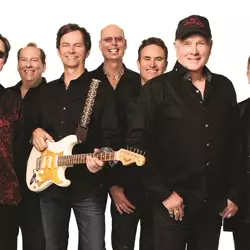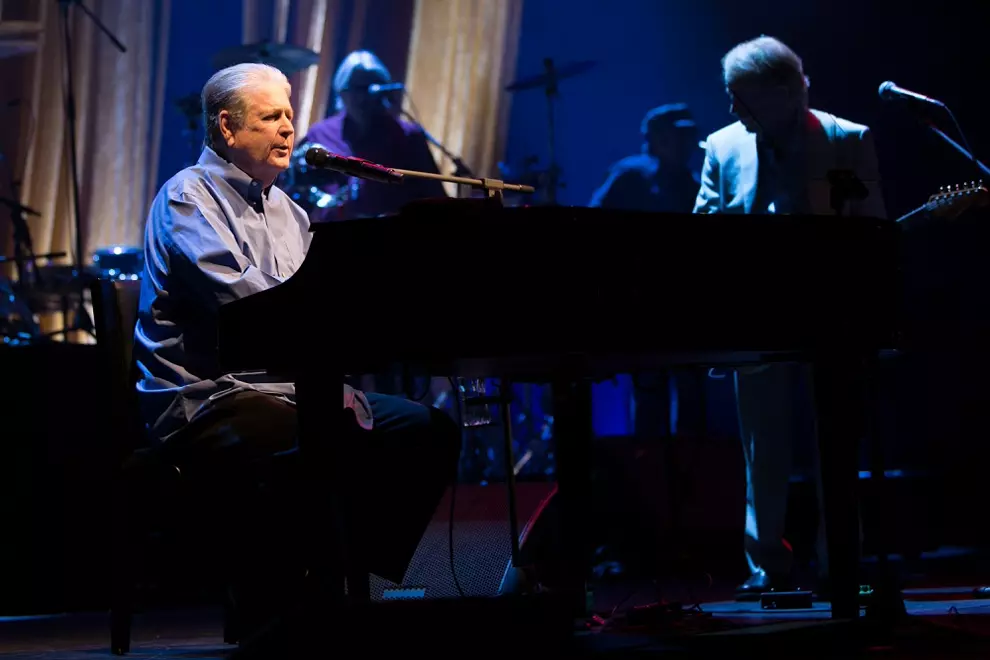 The Beach Boys
The Beach BoysThe death of The Beach Boys’ Brian Wilson today may not have been a shock, given his recent ill health, but it has certainly sent shock waves through the music industry as we mourn the loss of one of the greatest musicians of all time.
Wilson is a beacon to the modern musician that artistry and commerce don’t always align, but that, conversely, pushing boundaries is not inherently non-commercial.
For me, Best of the Beach Boys was one of the tapes we’d throw on when being driven up the coast as kids. Surfin' USA, Fun, Fun, Fun, and I Get Around were always favourites. As I got older, I would be intrigued by the simple sing-along of Barbara Ann. It wasn’t until later, going down the rabbit hole, that I learned that the “live” song was actually a meticulously planned and multi-layered production created to produce that feel.
In My Room was a song that spoke to me as I moved into my teenage years. The dripping harmonies and simplicity of nailing what it’s like to be a confused teenage boy were every bit as impressive to me thirty years after its creation and at least as formative as my contemporaries like Green Day.
But the genius of Wilson was in bringing his audience on an artistic journey, whether they started it in 1965 or today. It’s a journey that’s sitting there waiting to be discovered by anyone who cares to.
Don't miss a beat with our FREE daily newsletter
The genius does not lie in perfection. In fact, Brian Wilson is responsible for some of the most heinous abominations ever to inflict the world or music. That’s part of the journey. Without experimentation, you will never achieve greatness.
Everyone has heard the story. Wilson had a string of hits across the 1960s culminating in Pet Sounds, one of the world’s most lauded albums. Modern musicians would do well to be reminded that Pet Sounds was a massive flop. The kids wanted more songs about girls and cars, but Brian had already delivered that and was moving on.
It’s only hindsight that shows us he was right, and the public eventually caught up. With the creation of the legendary Smile album, the narrative goes that he hit his creative peak. It doesn’t matter if that’s true because the important thing is the story.
Perhaps one of the world’s most experimental albums, it includes the recording of chomping on celery. Some of it was written in a sandpit he created for his piano to sit in in his living room. The extensive studio band needed to wear fire hats to get the vibe of the fire on Mrs O’Leary’s Cow.
It includes nonsensical lyrics from mad genius Van Dyke Parks. I was lucky enough to welcome Parks to Brisbane to keynote BIGSOUND in 2009. I think I learned more from my time with him about artistry than almost any other time. And in doing so, I gained a real insight into the mind of Brian Wilson and all true artists.
He wasn’t about perfection. He was about experimentation. He wasn’t about money; he was about opportunity. In fact, the biggest question I got was how we had afforded him on the meagre budgets BIGSOUND had at the time.
The reality was that I emailed his Gmail, and he said he’d come if we covered his economy flight and he’d be able to catch up with his good friend Daniel (Johns of Silverchair, with whom he was working at the time). While here, he was thankful for the opportunity we gave him, which blew my mind. This guy was a genius, so why didn’t he want to be treated like one?
Brian Wilson, I believe, lived by the same mantra. He looked at the opportunities in front of him and followed his muse rather than his wallet.
You don’t often have a record company spending millions on production, so when you do, you bring in the orchestra with the fucking fire hats.
We could all learn that lesson. If there’s an opportunity that might set your life on a new adventure in front of you, if your muse says you should, then do it. The worst you can do is fail (I thought of that when choosing to jump into music media!). You don’t know the real opportunity until hindsight kicks in, so go with your gut.
Was Smile the greatest of all time? Well, it’s subjective. I think it is. But it doesn’t matter. The art is in Wilson’s life as much as the music. It’s in the Smiley Smile version of Surf’s Up where the ambition was pared back because his ambition was curbed. It’s on the Love You album in the late 70s, ostensibly a solo album of simple pop melodies.
It’s in the horrendous Smart Girls, a rap song he created in the late 1980s under the influence of a predatory psychologist (yes, it’s an amazing story on its own). It’s also in his Imagination album of the late 1990s.
When he finally had his triumph, launching the shelved Smile project in the early 2000s, it was seen as a potential renaissance for the genius. So he produced an album of Disney movie song covers. Why? Why not? He wasn’t the musician who created Smile, so his 21st-century output wasn’t a disappointment; it was simply a reflection of who he was then.
A true artist’s musical output is a manifestation of who they are and what is in front of them at the time, and there is no greater story than Brian Wilson’s for that music to soundtrack.
The Beach Boys more broadly add subplots and narratives, including the “villain” Mike Love (who isn’t really a villain, he’s just living his own story in a different way). There’s his overlooked brother Dennis, living in Brian’s shadow (check out the brilliant Pacific Ocean Blue). There’s the way the band works both with and around Brian through their patchy 70s output. There’s the abusive father, the second wife who rescued him from the clutches of the evil psychologist.
But his story is also in ours. After growing up with my Dad’s The Beach Boys tape and later discovering their whole discography, I got to take him to see Smile in person later in life, and it was an incredible shared experience for us both. The Brian Wilson story is a shared one for millions of people all over the world that means different things to different people, but all rooted in the same truth around which Brian and our narratives are all woven… the musical output.
In a lot of ways, life is the art, and music is the soundtrack to it. To learn about Brian Wilson today, watch one of the many documentaries that outline that amazing story. But to truly know Brian Wilson, all you have to do is drop a needle on the records. Not just the critically acclaimed ones. They won’t tell you the whole story. Listen to all of them and celebrate his whole life, and perhaps it will add something to yours.
The legacy of Brian Wilson and the good vibrations of his life are there for us all to discover.

















